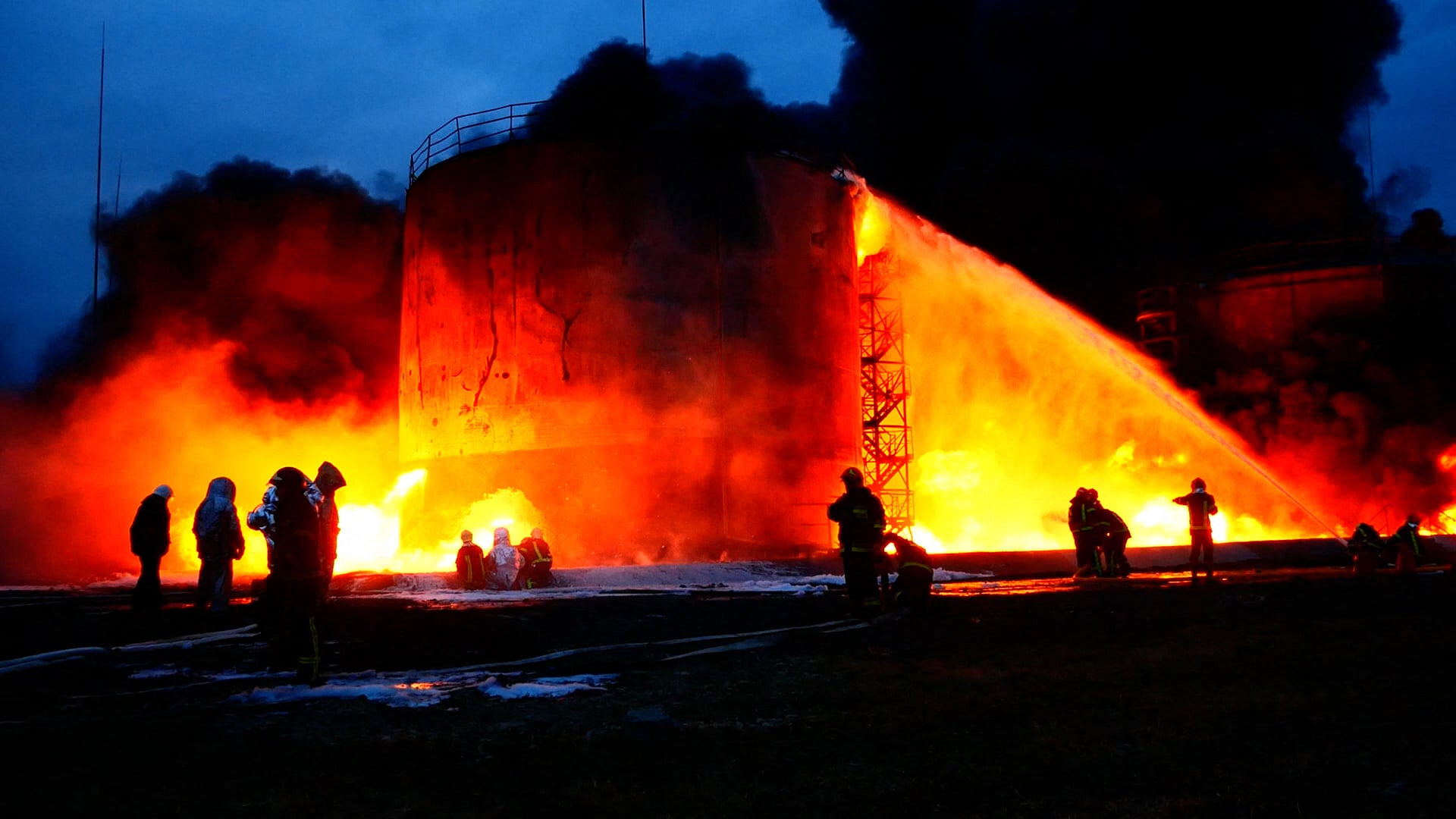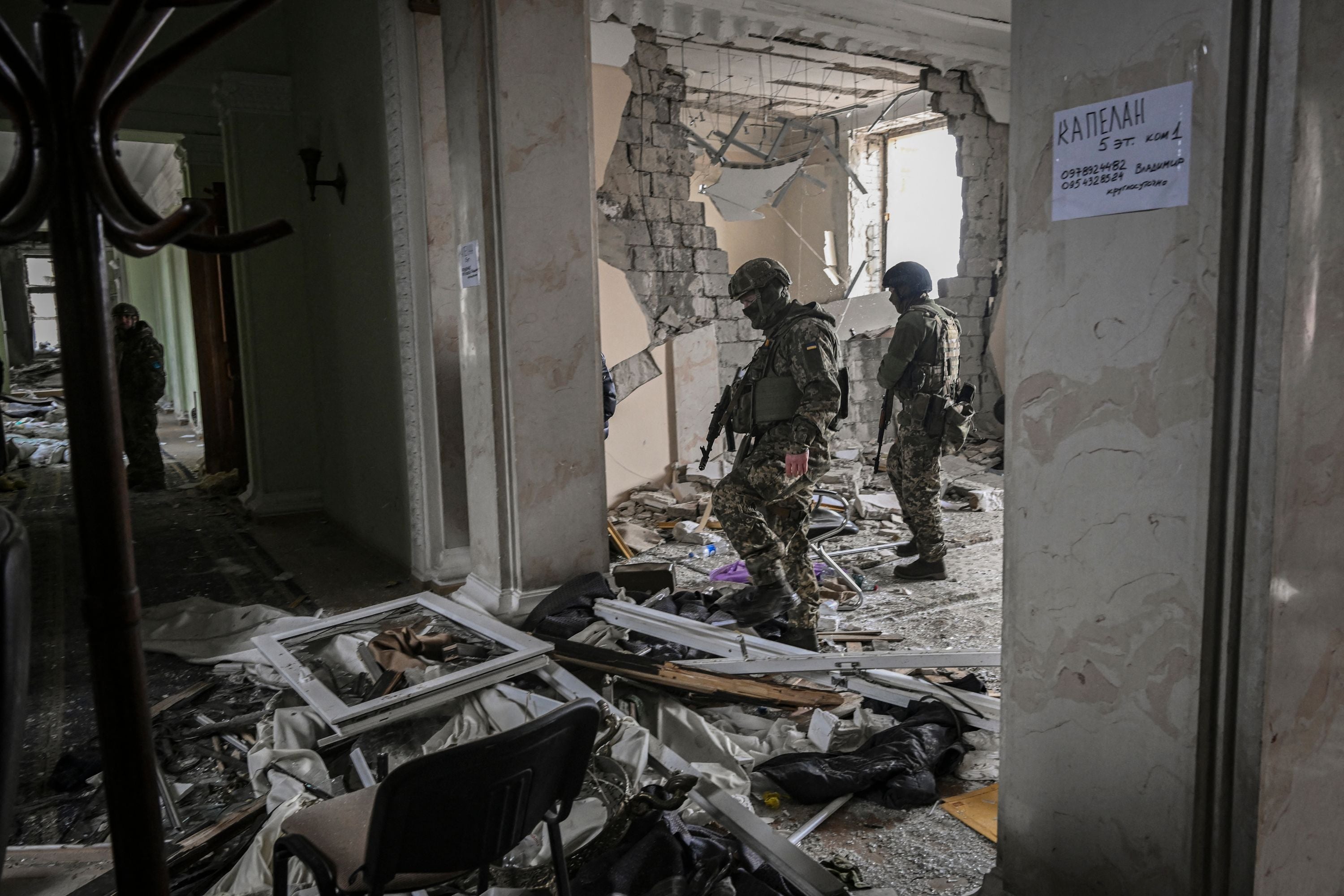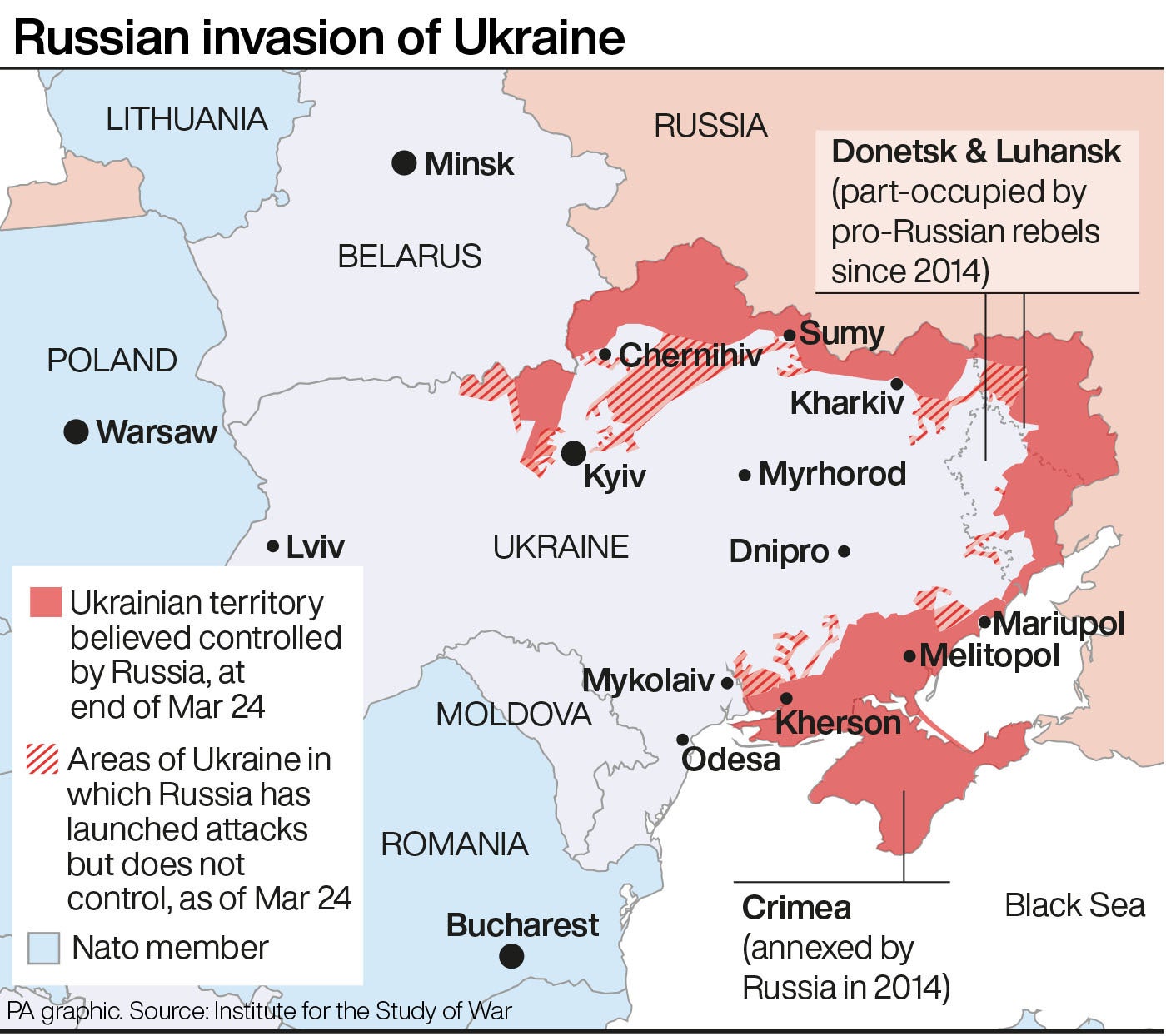Air raid sirens across Ukraine as Russia pounds cities with missiles hours before new peace talks
Another oil depot is reported to be hit as Russians target fuel supply ahead of talks in Turkey in Monday
Your support helps us to tell the story
From reproductive rights to climate change to Big Tech, The Independent is on the ground when the story is developing. Whether it's investigating the financials of Elon Musk's pro-Trump PAC or producing our latest documentary, 'The A Word', which shines a light on the American women fighting for reproductive rights, we know how important it is to parse out the facts from the messaging.
At such a critical moment in US history, we need reporters on the ground. Your donation allows us to keep sending journalists to speak to both sides of the story.
The Independent is trusted by Americans across the entire political spectrum. And unlike many other quality news outlets, we choose not to lock Americans out of our reporting and analysis with paywalls. We believe quality journalism should be available to everyone, paid for by those who can afford it.
Your support makes all the difference.Air raid sirens sounded in every region of Ukraine on Sunday night as Russia bombed cities across the country, according to reports from local media.
Missiles hit Lutsk, Zhytomyr, Rivne and Kharkiv, an adviser to Volodymyr Zelensky said in what he described as an ongoing attempt to “wipe Ukraine off the face of the earth”.
The governor of Volyn, a region home to Lutsk just north of Lviv in western Ukraine, said an oil depot had been hit – the third reported strike on a fuel facility since Thursday.
All Ukrainians across the country have been told to shelter, local media reported on Sunday night, hours before Moscow and Kyiv were due to hold in-person peace talks in Turkey.
Russian naval forces are continuing “sporadic missile strikes against targets throughout Ukraine”, the latest intelligence assessment from the Ministry of Defence (MoD) said.
A “distant blockade” of Ukraine’s Black Sea coast was said to be “effectively isolating” the nation from international maritime trade.
However, the recent destruction of the Saratov landing ship will likely deter the Russian navy from sailing close to the Ukrainian shore, the MoD said.
Russia has started targeting fuel and food storage sites, Ukrainian interior ministry adviser Vadym Denysenko said after oil depots near Kyiv and Lviv were hit by Russian strikes on Thursday and Saturday respectively.

Speaking on local television, Mr Denysenko also said Russia was bringing forces to the Ukrainian border on rotation, and could make new attempts to advance in its invasion of Ukraine.
A Russian military leader on Friday suggested that Moscow was moving on from “the first phase” of its invasion and claimed success in the military’s efforts so far.
Sergei Rudskoi, head of the Russian General Staff’s Main Operational Directorate, said: “The combat potential of the Armed Forces of Ukraine has been considerably reduced, which ... makes it possible to focus our core efforts on achieving the main goal, the liberation of Donbas.”

Kyrylo Budanov, the head of Ukrainian military intelligence, on Sunday said Russia was preparing to seize the eastern region of Ukraine and accused Moscow of seeking to split Ukraine in two, like North and South Korea.
As in-person peace talks were set to resume in Turkey on Monday, Volodymyr Zelensky called for compromise over the Donbas.
Speaking to Russian newspapers on Sunday, the Ukrainian president said the region, where separatists have been fighting the Kyiv government for the past eight years, could be part of a settlement.
Mr Zelensky also said Ukraine would consider military neutrality if it was backed by security guarantees.

“Security guarantees and neutrality, non-nuclear status of our state. We are ready to go for it,” he said, speaking in Russian and adding that neutrality would have to be guaranteed by third parties and put to a referendum.
One of Russia’s initial stated aims for the invasion was the “demilitarisation” of its neighbour, which it has long feared will join Nato and push the western alliance’s boundary further east.
Join our commenting forum
Join thought-provoking conversations, follow other Independent readers and see their replies
Comments